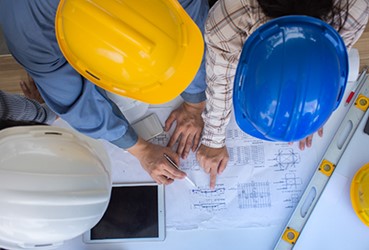Take Advantage Of BABA's Transformational Opportunity

By Mark V Wiley, Chief Editor, Water Online Advantage

Nearly three decades ago investments in American water infrastructure started to wane. Less and less funds were made available each year, each decade, until we’ve reached a point where we have so many aging pipelines, pumps, equipment, and outdated treatment plants that serious work is needed to prevent disaster. Even a brief review of our nation’s water and wastewater infrastructure illustrates a desperate need for upgrade, retrofit, and new build.
But raw materials and manufacturing are expensive and increased costs inevitably get passed on to consumers, making clean water unaffordable or inaccessible to the less fortunate communities. Treatment equipment vendors must find ways to strengthen their bottom line while winning bids to build the equipment needed to fix our water and wastewater infrastructure. Until recently, this has been increasingly difficult. But with the passing of the Build America, Buy America (BABA) Act, that could all change.
New Laws, Acts and Funding
In 2021 the Infrastructure Investment and Jobs Act (IJJA - aka, Bipartisan Infrastructure Law - BIL), was passed which provides an unprecedented level of federal investment in American water infrastructure. BIL provides broad eligibilities for drinking water and clean water projects through Clean Water State Revolving Funds (CWSRF).
In its Decision Memorandum, the U.S. Environmental Protection Agency (EPA) says it is honored to play a leadership role in implementing these provisions and is proud of its nearly decade of successful implementation of American Iron and Steel provisions in its SRF programs. Through these efforts, EPA will support efforts to catalyze domestic manufacturing, resilient supply chains, and good jobs – while successfully delivering a wide range of infrastructure projects.
Alongside BIL and CWSRF is the Build America, Buy America Act (BABA) act, which establishes strong and permanent domestic sourcing requirements across all federal financial assistance programs. The basic requirement being that 55% of all iron, steel, manufactured products, and construction materials must be domestically produced for a project to receive and used federal funding.
What is Build America, Buy America (BABA)?
BABA is Public Law 117-58 included in IIJA/BIL under Title IX, Subtitle A, Part I - Buy America Sourcing Requirements. This law requires that, “…none of the funds made available for a Federal financial assistance program for infrastructure, including each deficient program, may be obligated for a project unless all of the iron, steel, manufactured products, and construction materials used in the project are produced in the United States.”
In addition to new projects, BABA also adds new requirements to several existing EPA infrastructure programs including:
- Tribes, Territories, and District of Columbia
- Section 319 Nonpoint Source Implementation Grand Program
- National Estuary Program
- Water Infrastructure Improvements for the Nation (WIIN) Grant Program
- Sewer Ovewrflow and Stormwater Reuse Municipal Grans (OSG)
- Alaska Native Village (ANV) Grant Program
- United States - Mexico Border Infrastructure Program
- America’s Water Infrastructure Act (AWIA) Resiliency Grant Program
- Congressionally Directed Spending/Community Project funding.
Concerning BABA Regulations
What seems most confusing and concerning to treatment equipment vendors is the Baba regulations that 55% of the cost of their materials must be on goods that were manufactured in the United States. Confounding this is the issue of determining what was “made” in America as opposed to merely being “assembled” in America with imported materials and/or parts. If you're trying to avoid the 55% regulation due to sourcing and/or costs prohibitions, there are waivers available with their respective regulations and restrictions. Oversight of BABA is being handled by the Made in America Office (MIAO) and questions and concerns about it should be directed there.
While the rules and process may seem confusing, go and ask your questions. This is a time in history when government funding for infrastructure is available and as a water/wastewater treatment equipment vendor, this could give you the boost you need to help America while building your business.
